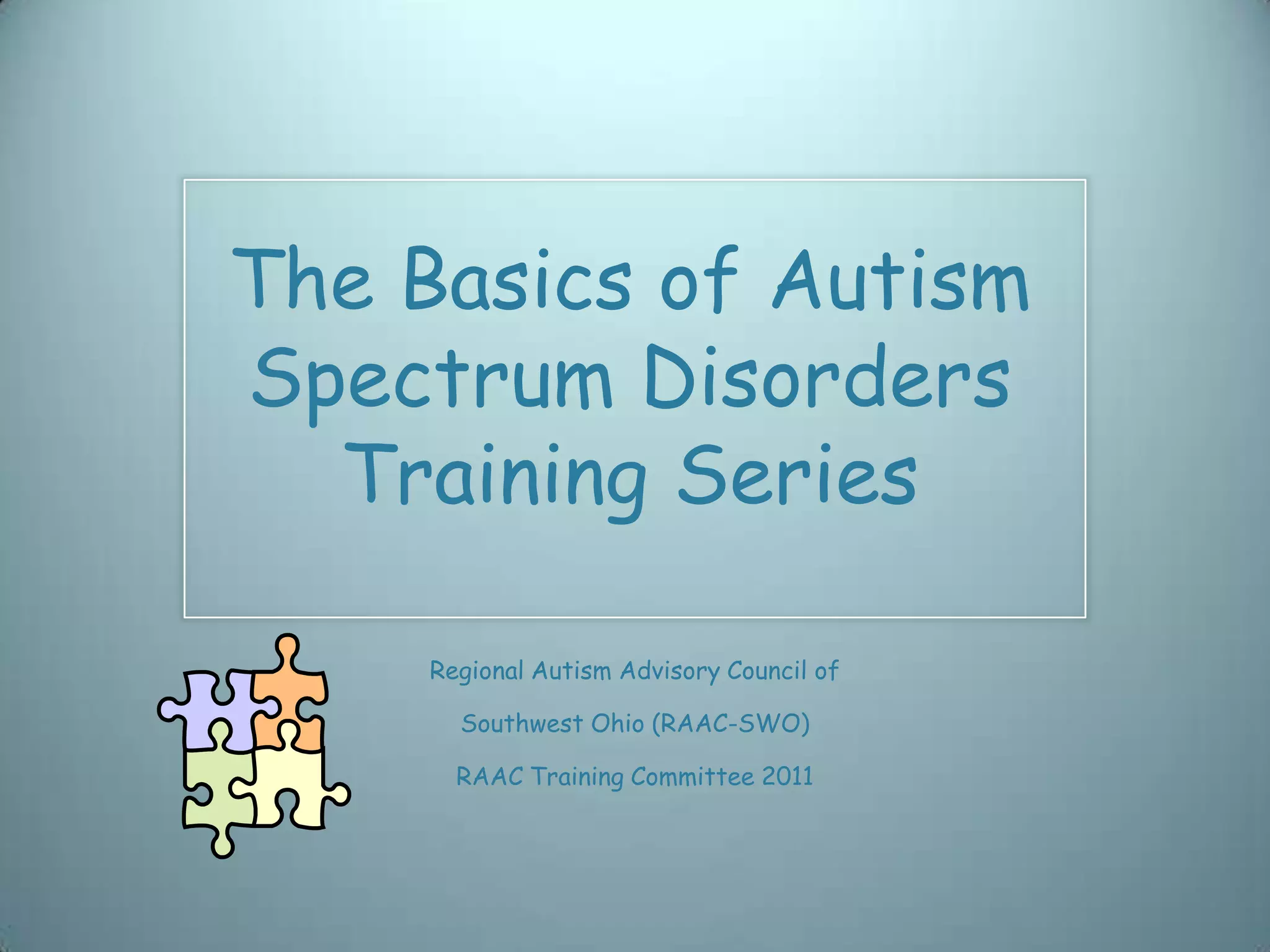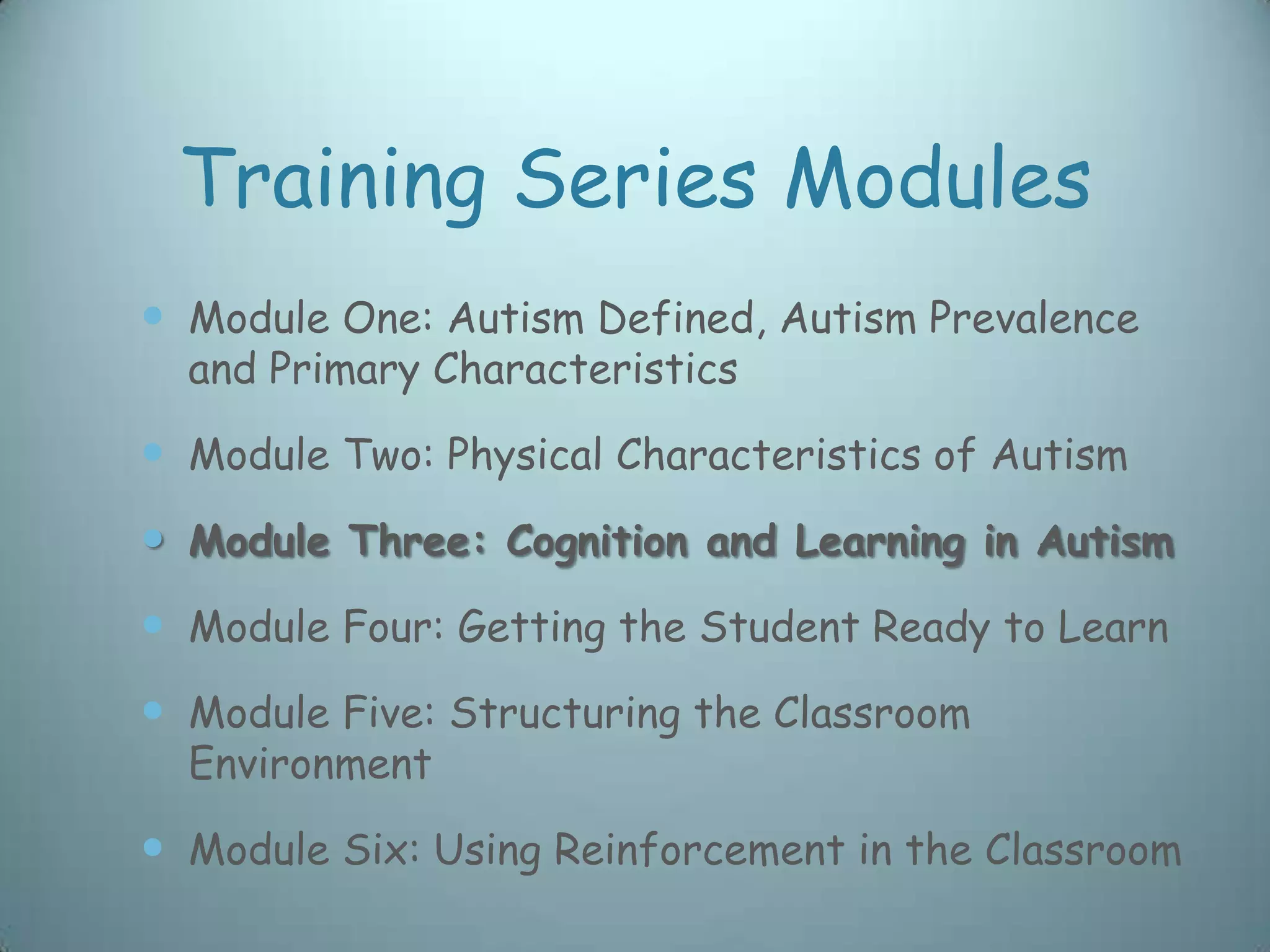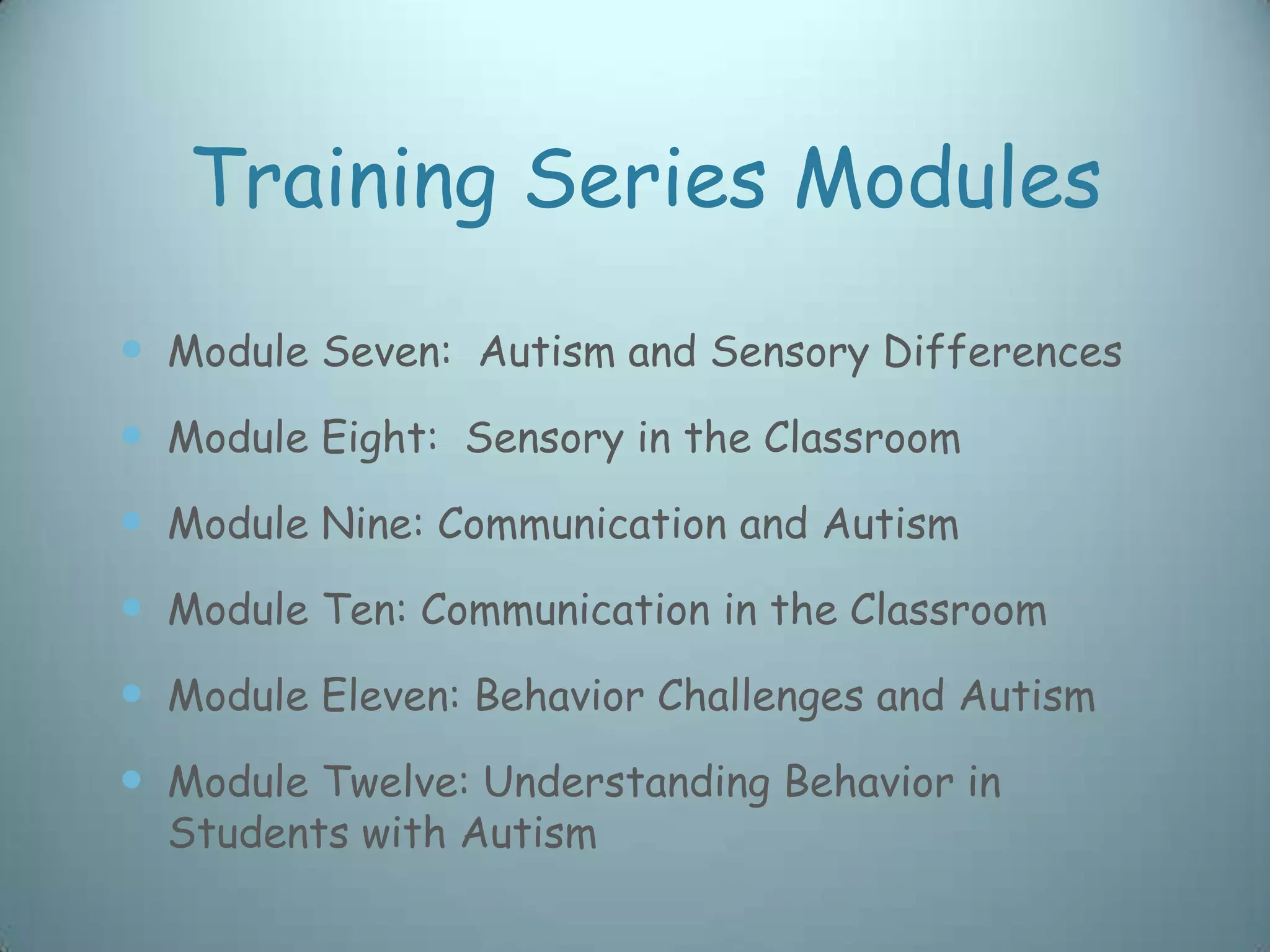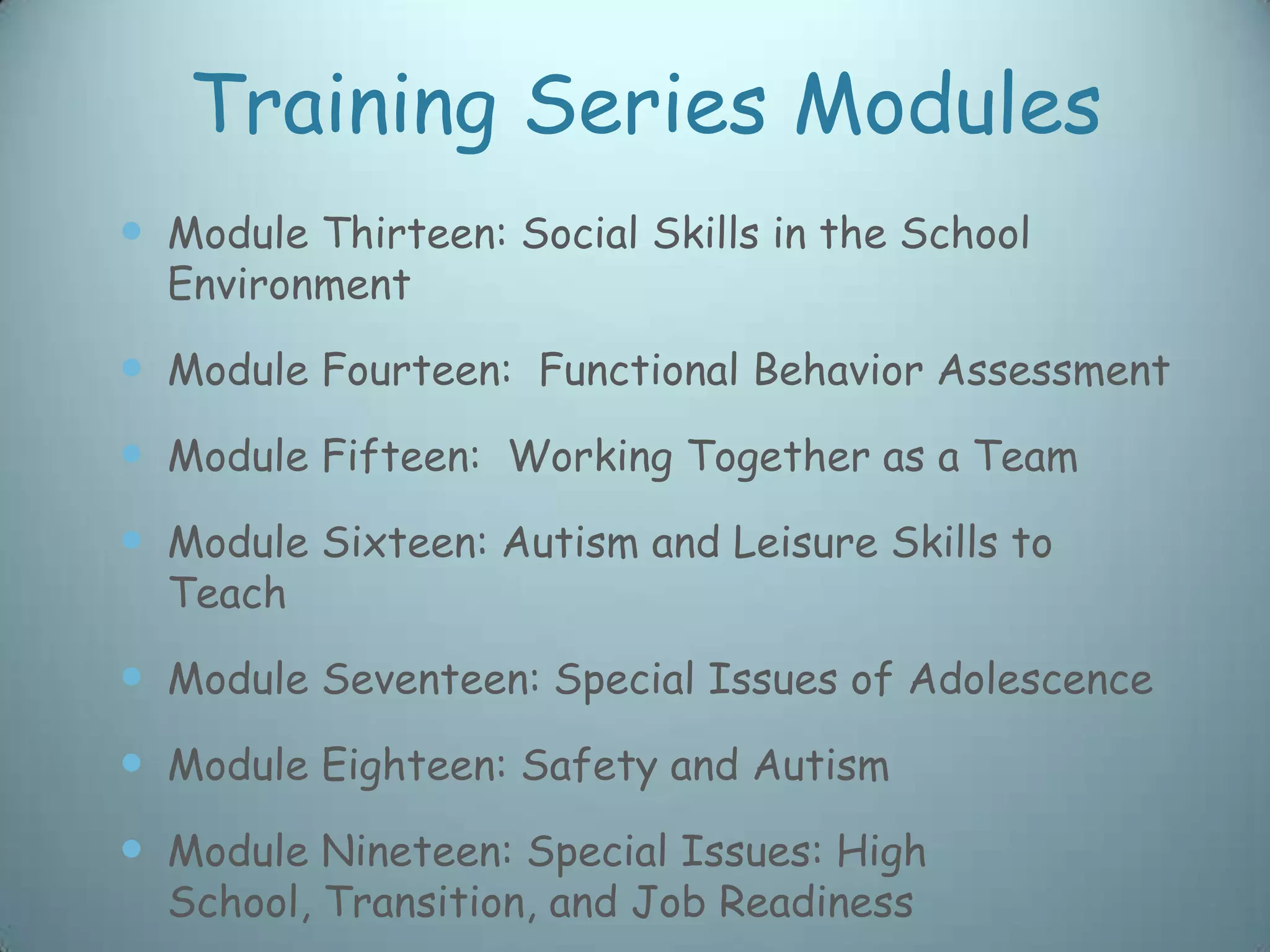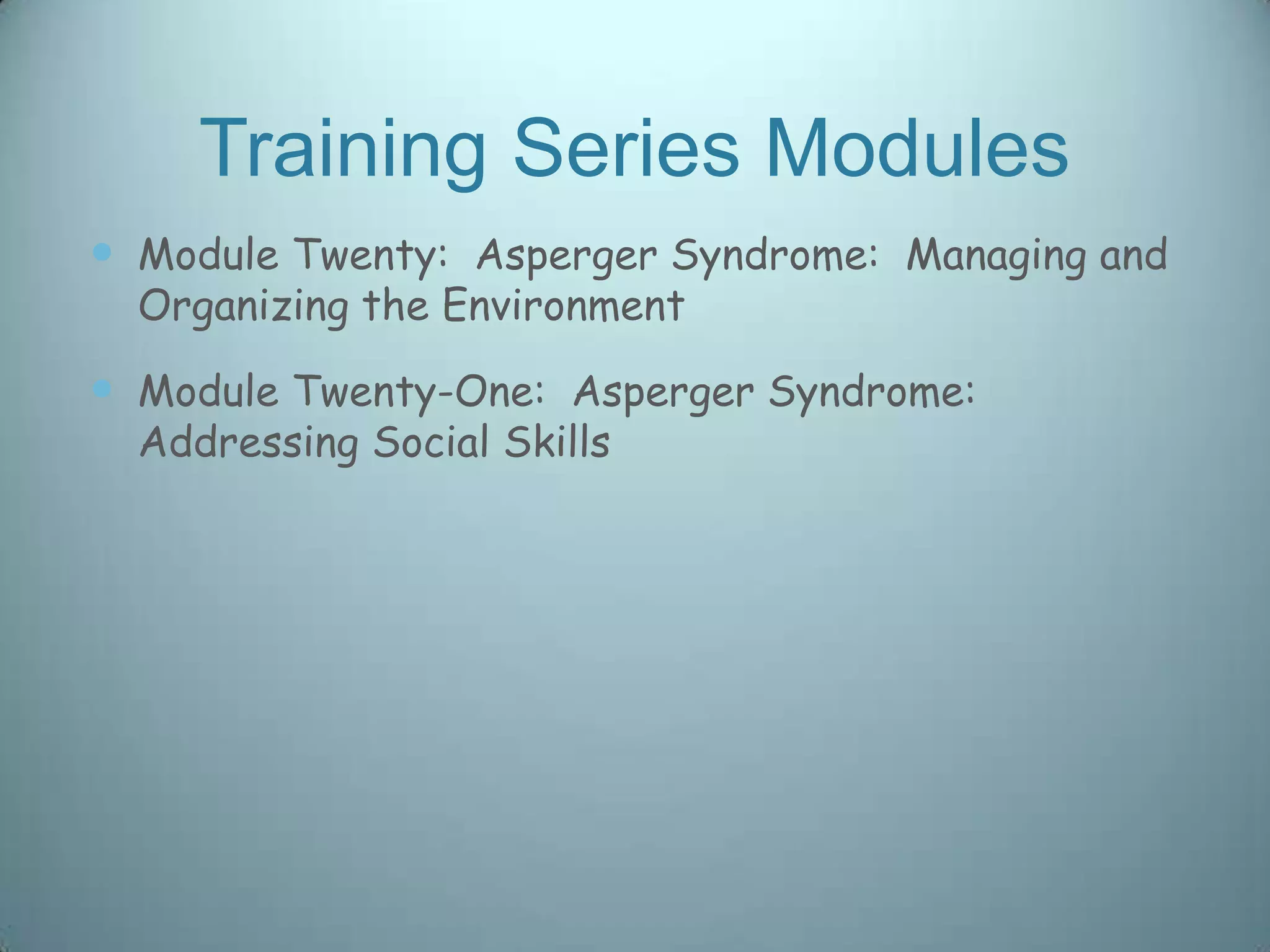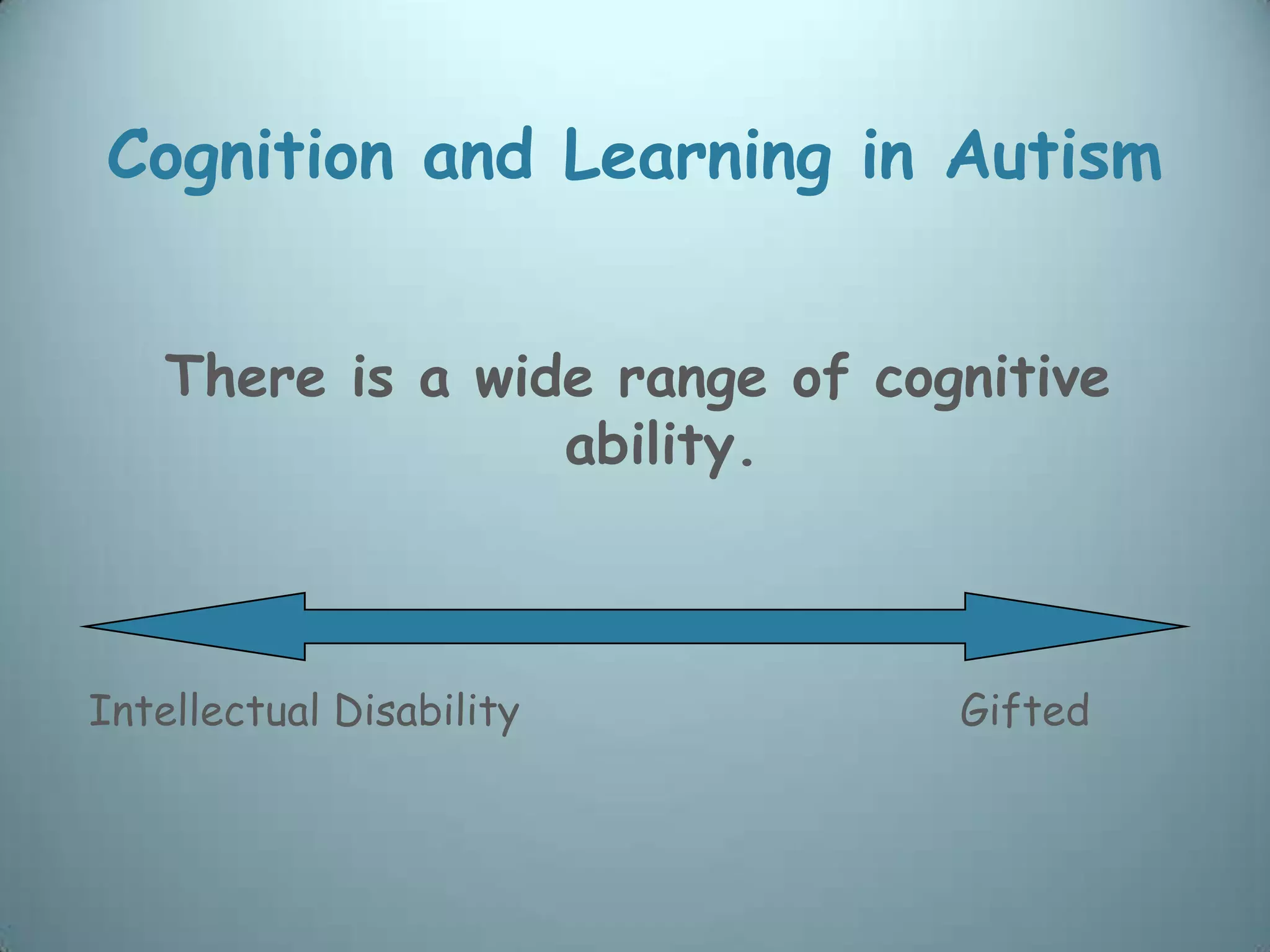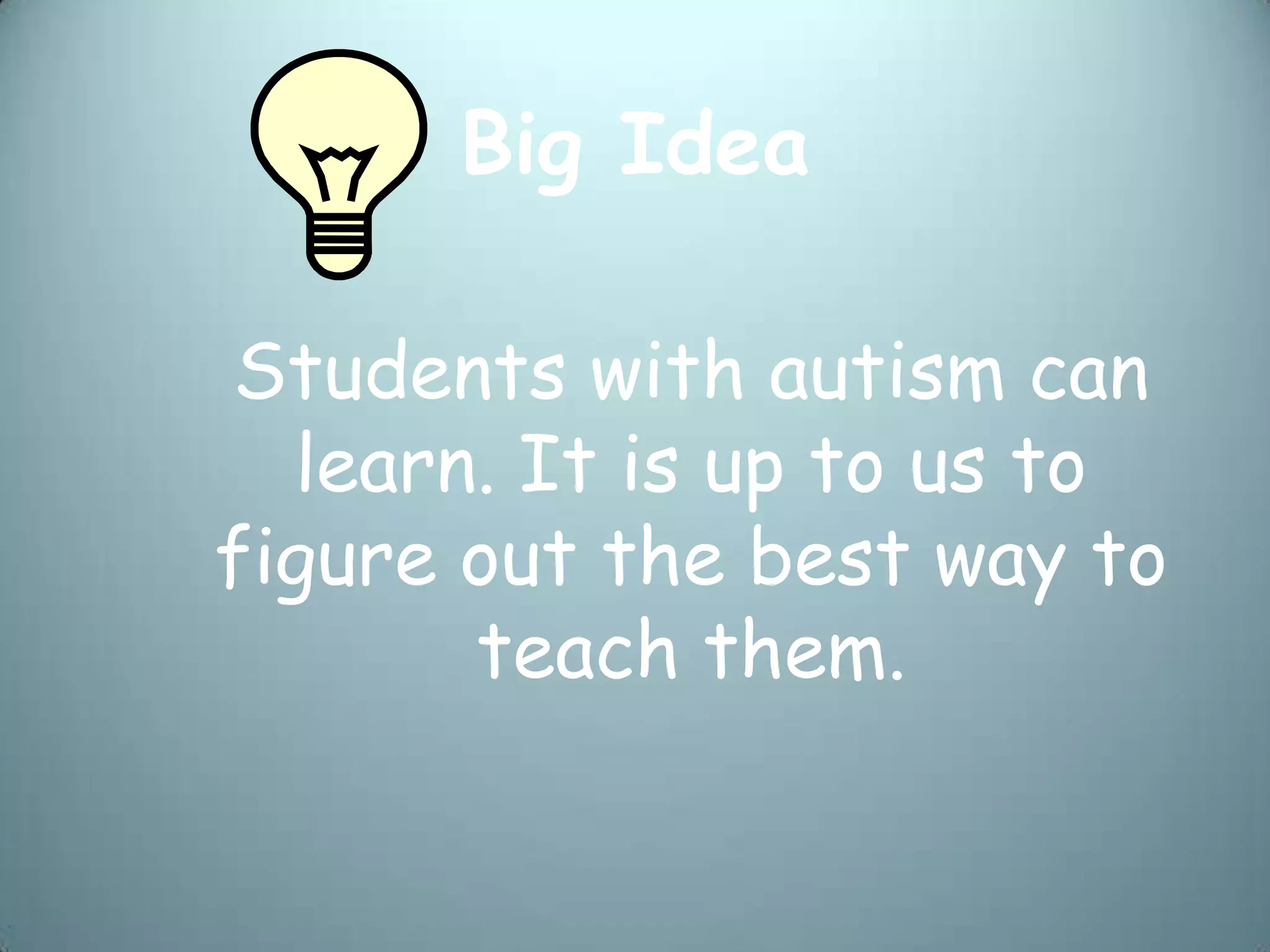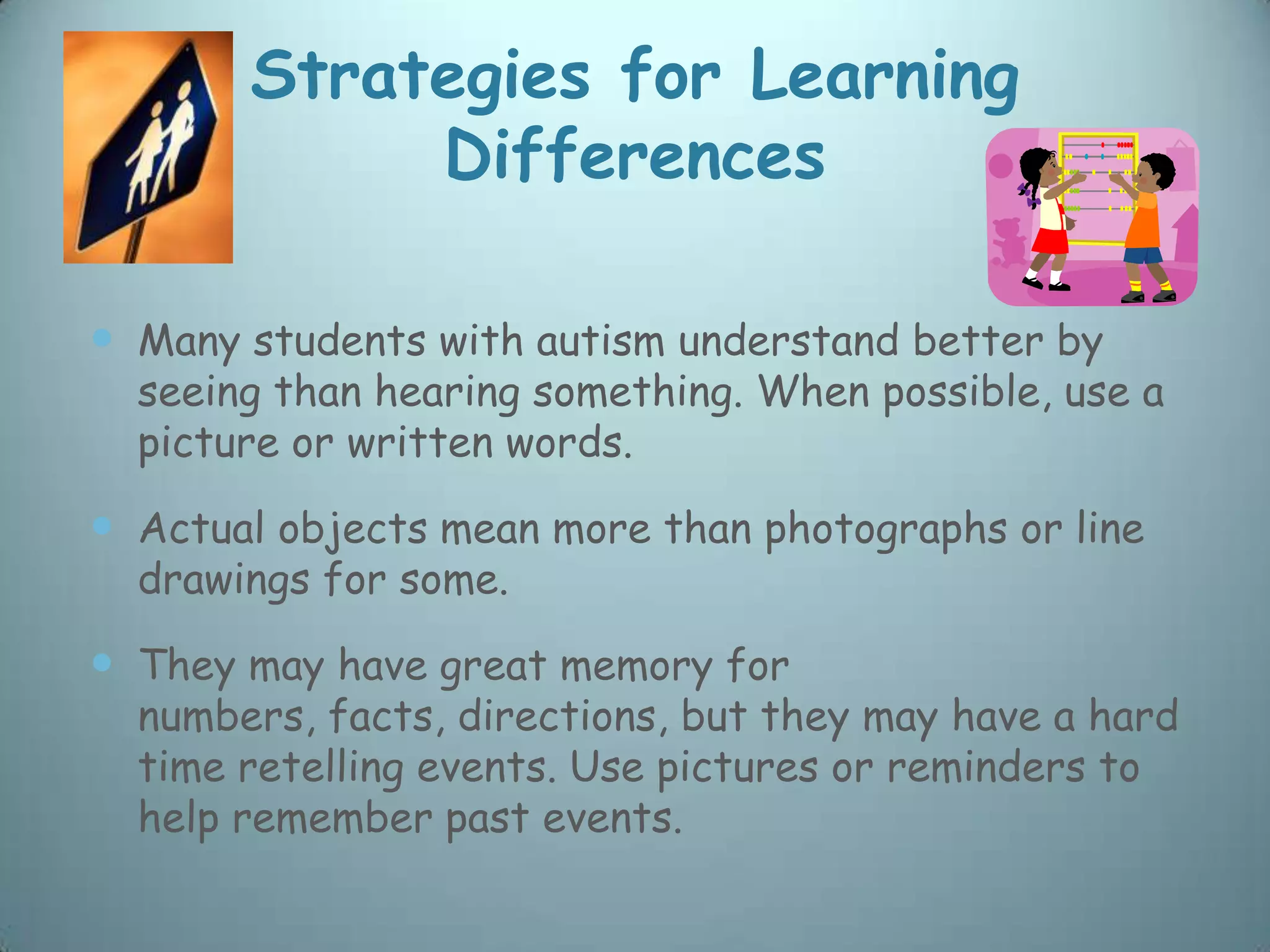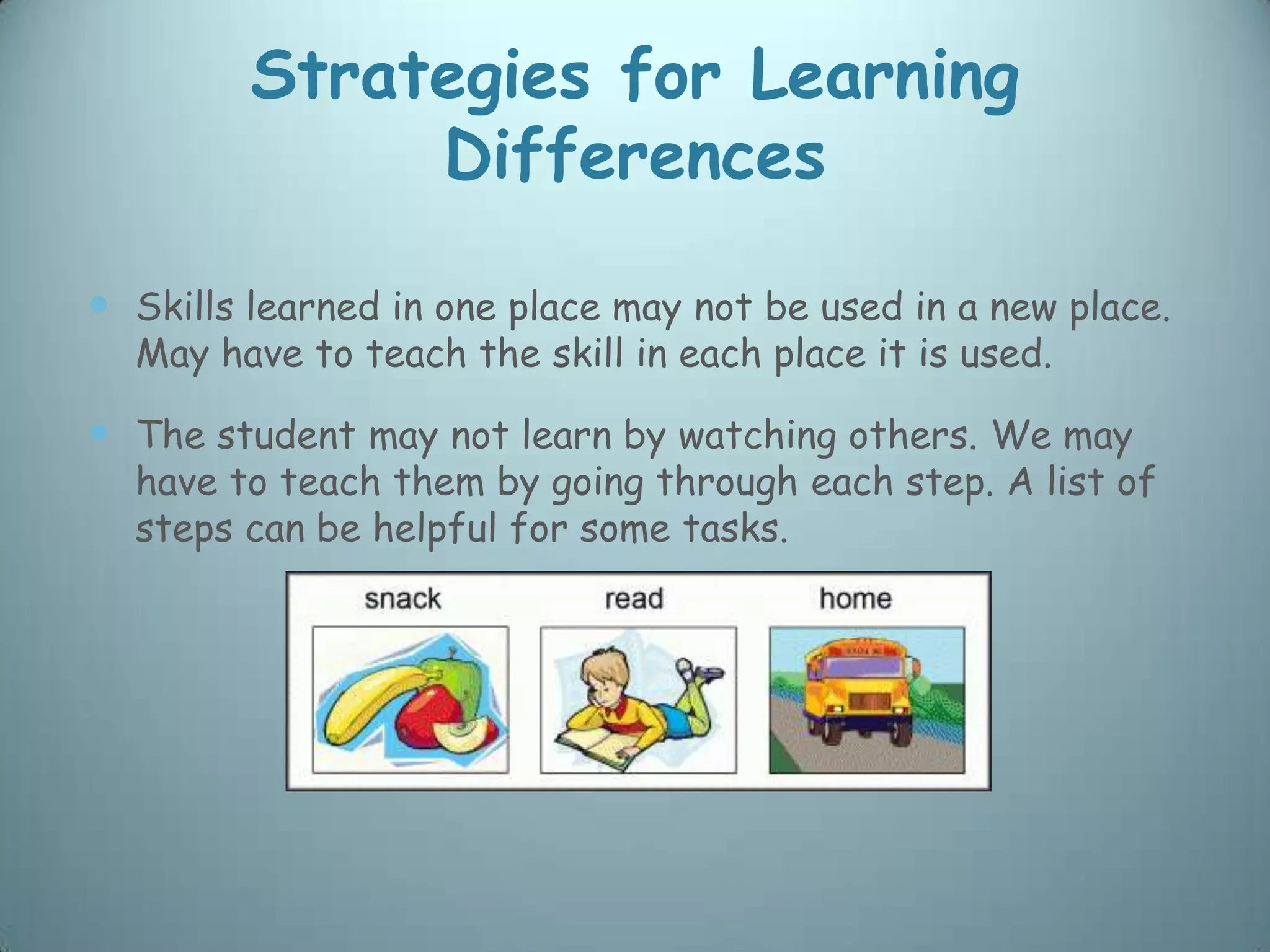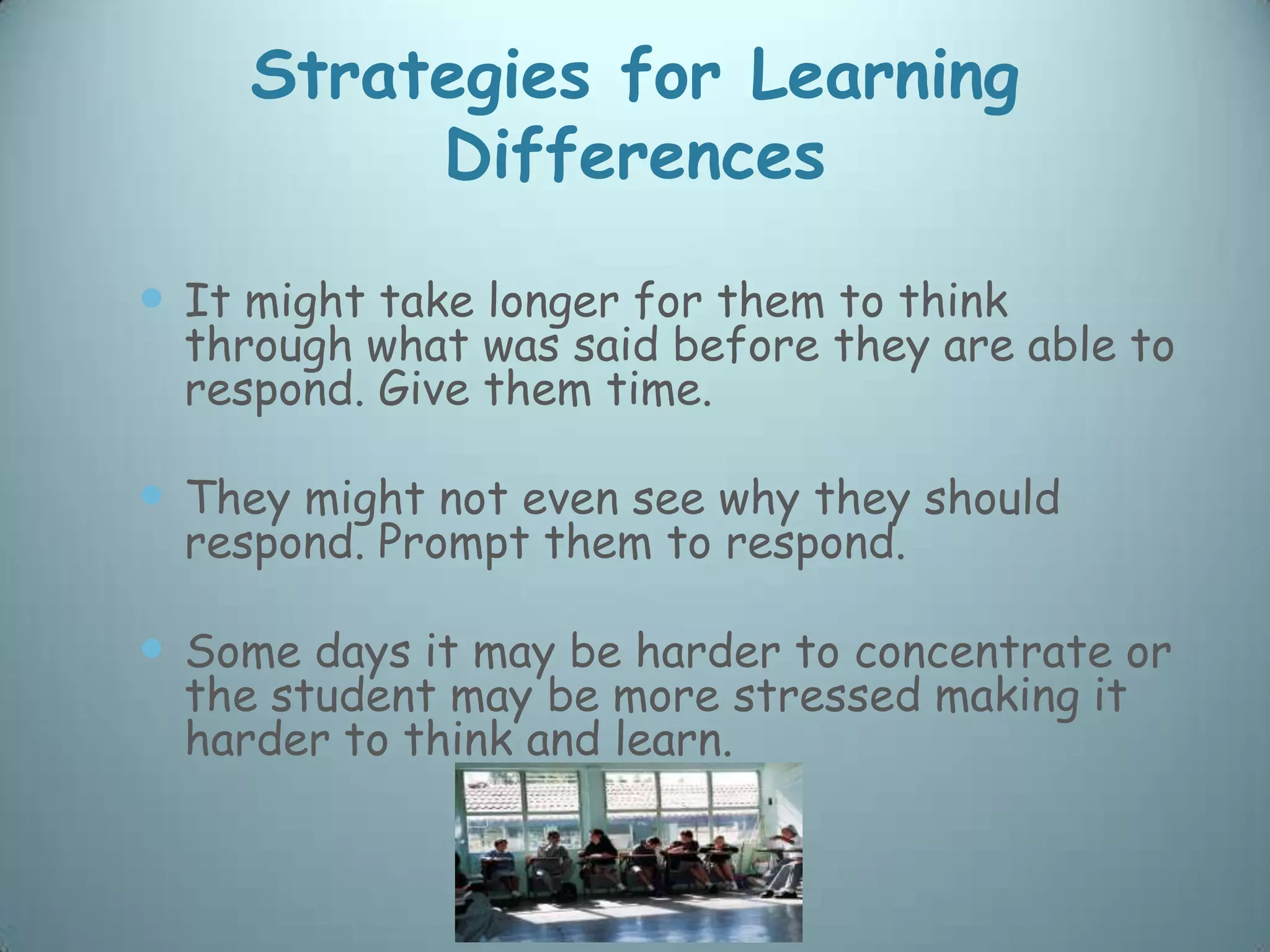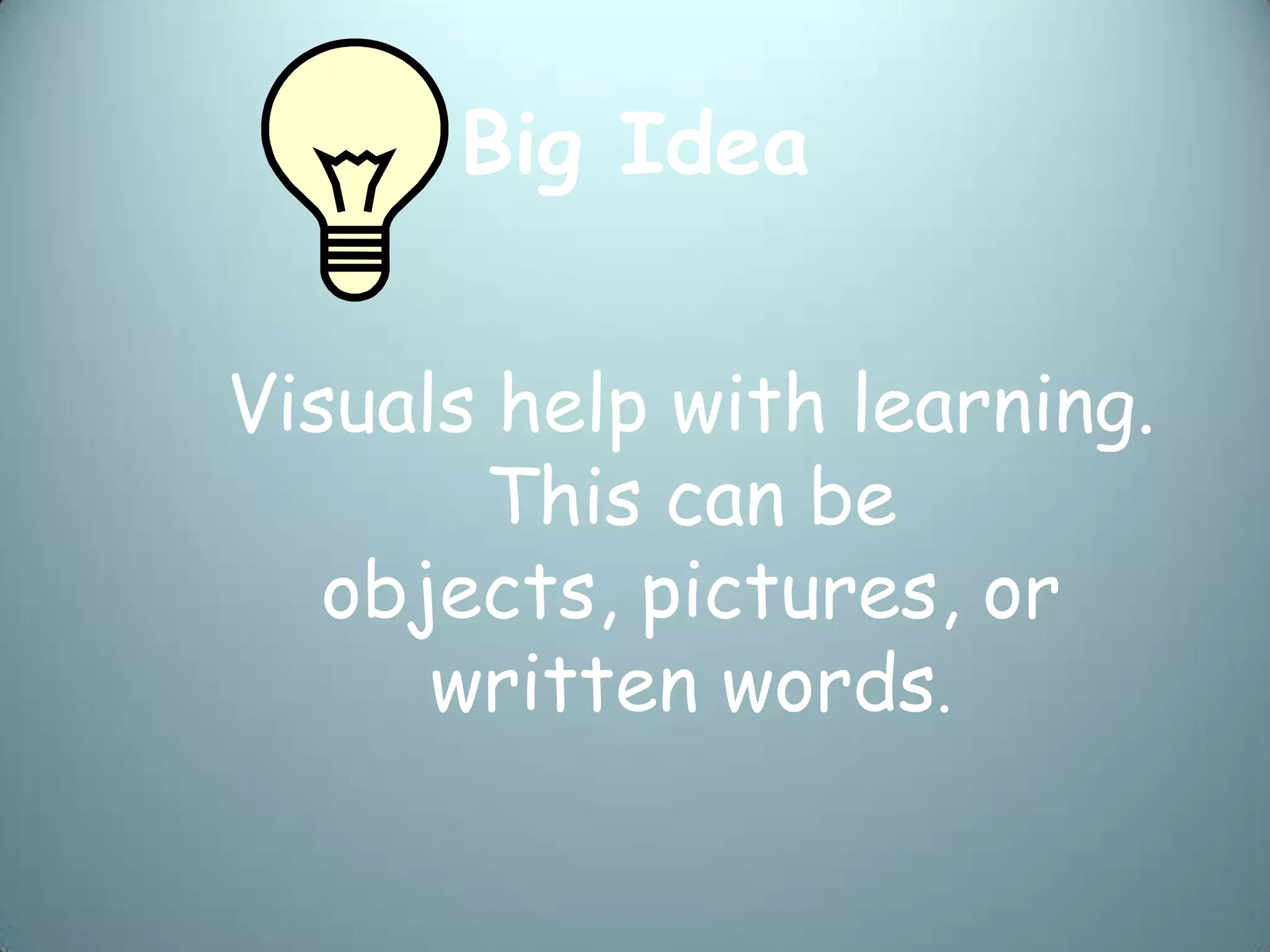The document outlines 21 training modules on autism spectrum disorders for educators. It discusses the wide range of cognitive abilities in autism from intellectual disability to gifted. Key strategies for teaching students with autism include using visual aids like objects, pictures and words; teaching skills in each environment; and allowing extra time for processing information.
